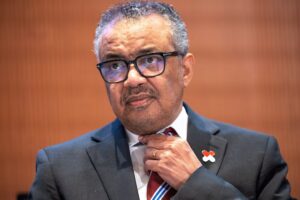
In the wake of the U.S. government’s decision to suspend foreign aid, healthcare systems across the globe are grappling with dire consequences. From stranded shipments of life-saving medications to shuttered clinics, the impact is being felt most acutely by vulnerable populations who depend on these services for survival.
Voices from the Frontlines
Dr. Amina Yusuf, a pediatrician in Nigeria, shared her distress over the halted shipments of essential tuberculosis medications. “We had a robust system to treat pediatric TB cases, but now we’re facing a shortage,” she said. “Without these medicines, many children may not survive.”
Similar concerns were echoed by Dr. Samuel Peterson, a public health expert in Kenya, who reported a sudden rise in preventable illnesses. “The lack of medical oxygen and vaccines has crippled our healthcare infrastructure. This suspension isn’t just a financial issue; it’s a humanitarian crisis,” he warned.
Patients Struggling to Cope
For patients like Maria Lopez, a 34-year-old living with HIV in Guatemala, the suspension has been devastating. “I used to receive my antiretroviral drugs regularly through a USAID-funded clinic. Now, I don’t know how long I can survive without them,” she said, tears streaming down her face.
In Malawi, Grace Banda, a 27-year-old mother, said she is unable to access contraceptives due to the funding freeze. “I have three children and cannot afford another pregnancy. These services were my lifeline,” she explained.
Calls for Immediate Action
Health officials worldwide are urging the U.S. government to reconsider its decision. Dr. Tedros Adhanom Ghebreyesus, Director-General of the World Health Organization, described the suspension as “a catastrophic blow to global health.”
“The aid provided by the U.S. has saved millions of lives over the years,” Dr. Ghebreyesus stated. “Cutting it off abruptly jeopardizes decades of progress in fighting diseases like HIV, TB, and malaria.”
Ripple Effects
Beyond direct health consequences, the suspension has also impacted the morale of healthcare workers. In Uganda, nurse Lillian Okello said, “We are losing faith. Our patients look to us for help, but our hands are tied.”
Analysts predict that the disruption could lead to a surge in maternal and child mortality, as well as outbreaks of preventable diseases.
A Plea for Humanity
As the crisis deepens, patients, doctors, and global health leaders are united in their plea for action. “This is not just about numbers or policies; it’s about human lives,” Dr. Peterson emphasized. “The world is watching. We need compassion, not bureaucracy, to guide us through this.”
For millions like Maria and Grace, hope hinges on the swift restoration of aid and a commitment to prioritize human health over political disagreements.